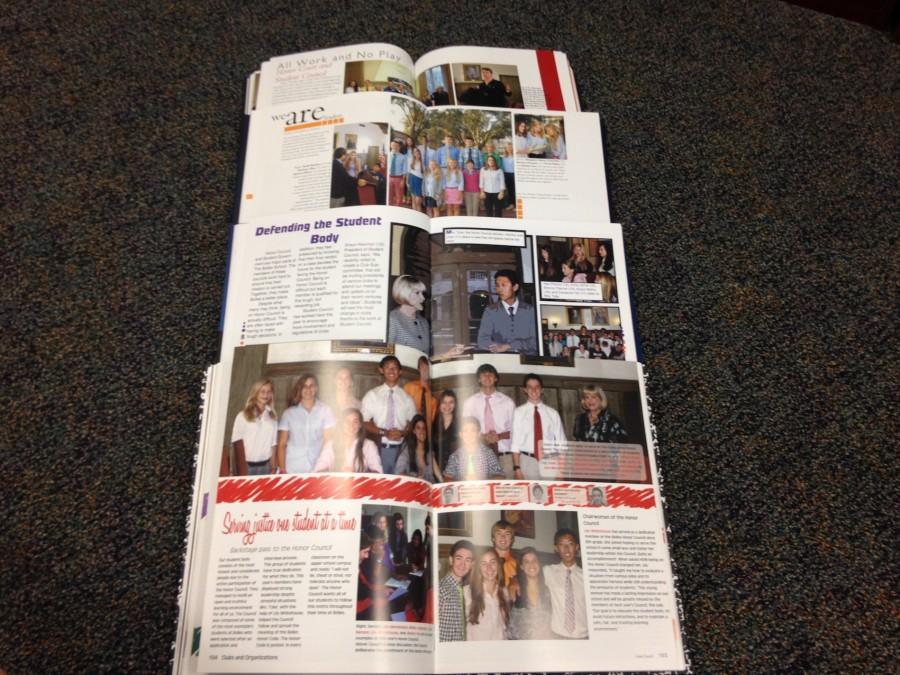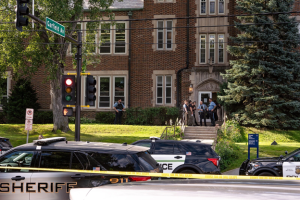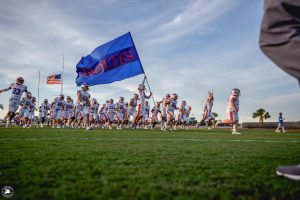What is the State of the Honor Council?
Above: Four years of Honor Council profiles in the yearbook.
March 2, 2016
“I will not lie, cheat, steal or tolerate those who do.” We’ve all heard this phrase uttered by members of the honor council at annual convocations or read it on brightly colored posters plastered on classroom walls. The honor code is the standard Bolles students are meant to live by to create a trusting and honest community.
As previously mentioned, the honor council administers the honor code. The council is currently composed of one freshman girl, two sophomore girls, two junior girls and one boy, and five senior boys. But for most students, their knowledge of the council ends there. Even with informational convocations many students may feel like they don’t really know what happens at honor council sessions.
It seems as though the only way to find out what goes on is to be brought before the council because of an honor code violation. My impetus for this article was to discover the basics of the two main processes of the council- selecting members and conviction hearings.
I interviewed Mrs. Tyler, the current faculty advisor to the council who has served in that position since 2011. Tyler’s job is to do “the investigative stuff” before sending a case to the council. She “peels back the layers of baloney” to get to the truth. This includes bringing the accused student into her office to “extract a confession.” She asks “why are you here?” and expects the student to tell the truth. Sometimes it is more comfortable for the student to have his/her peer- the honor council chair- to ask “In what universe do you think I’d believe that?”
Once Mrs. Tyler concludes the interview process she schedules a hearing for the student with the council. At this point she hands off the process to the council since it is a “student run entity.” After the hearing the members decide on a punishment “based on precedent.” This takes into account how old the student is and how long they have been at Bolles. The council’s decision is a “fait accompli”; they do not wait for administrative approval. The only time they” require approval by the head of school is for expulsion.” But for the “garden variety lunch duties and Saturdays, it’s a done deal.” However if a “student feels that there was unfair treatment, they have 24 hours to appeal to Mr. Hodges.”
The council has had “15 individual infractions since September.” In both of our opinions, that’s a lot. Currently the council’s only method of outreach is through convocations. Tyler stressed that previous “classroom visits were ineffective.” And honor council chair Aaron Abel ’16 feels the same: “The English classes allow students to make a joke out of it or give them an opportunity to waste time so they’ll ask stupid questions.” But if most people remember, the convocation last year was not taken seriously either. When the video about Vanderbilt’s honor system was presented, many students turned it into a joke. And Abel agreed he “didn’t like the video.” So one might wonder what method would be effective in connecting with students.
But Tyler says she doesn’t “have a way to measure the effectiveness of convocations.” Clearly there are a large number of honor code violations. So we can say “the convocations are not effective because we keep having infractions. But if we took away that communications system, would we have more cases?” So while the system is not perfect, the council is “always open to new ideas” about outreach.
One can view the council either as effective or not effective. “One place that we’ve made strides in is theft,” said Mrs. Tyler. I think most students can agree that they can leave their backpacks anywhere without worry of theft. “Over the last five years I’ve seen a decrease in locks on lockers,” added Tyler.
One area where infractions have increased is in plagiarism simply because it is so easy. “Plagiarism before the internet was a lot more trouble than it is now,” said Tyler. For students it’s very easy to be in denial about what plagiarism actually is. Tyler says that students think “I changed the words around so I didn’t really steal.” But she adds “it’s stealing an idea and people don’t want to accept that.”
But the volume of cases as not decreased in the past few years, so I wonder if the council truly effective. I asked both Tyler and Abel “won’t the bad kids do bad things and good kids will do good things regardless of the consequences?” Abel responded that “some students know the difference between right and wrong but choose to do wrong are the worst offenders.” He added that he’d “rather get someone who did something crazy but didn’t know it was wrong and have them learn from it.”
There is a saying somewhere that 20% of people will take your side, 20% of people you’re never going to get, but it’s the middle 60% that you have to win over. “The inbetween is a vast population,” says Tyler. “Their moral compass is pointing north but in a crunch…” There are kids who do bad things and kids who do good things “but there are kids who haven’t done anything wrong but when push comes to shove that whole thing of what’s the gain what’s the risk and what if I do it just this one time.” Again, students fall into denial.
The application process is fairly complex. The application goes out fourth quarter and it consists of five questions, some specific situations and some about ideology. Abel says the selection committee is “not looking for a specific answer they just want to see how you think.”
The selection committee is comprised of the exiting four or five seniors. However when a sibling is evaluating another sibling, then the most experienced junior normally takes the spot. Last year, Aaron Abel was that junior.
Mrs. Tyler says that member selection is “virtually completely to the discretion of the members.” Besides running possible candidates by the dean’s office for a background check of sorts, the selection committee does not need approval by Mrs. Tyler or the administration. “Sometimes when they’re down to two candidates then they ask for a tie breaker,” added Tyler.
None of the application review is a blind process. This makes sense because applicants have to be checked by the dean’s office for previous disciplinary actions. I asked when choosing new council members, if having the council representative of the student body was taken into account. “It’s a factor but it’s not the most important factor,” said Abel. I mentioned there had not been a boarder on the council the past two years and Abel responded:“if a good boarder does not apply then we’re not going to compromise on that for someone who is a boarder.”
Another reason the process is not initially blind because the “name is important.” Abel says “if you know that the person is someone who messes around a lot and someone people don’t take seriously” then that is not someone the selection committee wants on the council. Even though the committee reads the application out of respect, they have the “snicker test.” “If that person would get up at convocation and people would like yeahh woohh and start laughing” then that sort of person is not suitable for the council. With the council making serious decisions about people’s lives “you can’t have someone stupid sitting at the table.”
The current gender distribution is about half and half: six boys to five girls. And thanks to Mrs. Tyler for providing the gender distributions beginning in 2011, we know that it’s usually about half and half, occasionally boy or girl heavy. But I took it upon myself to search through the past yearbooks to find out the race distribution. In 2009 the council was all Caucasian as it was in 2015. In the years between there has never been more than two minorities on the council at a time. One African American is on the council this year. He is the only African American who has been on the board since 2009. I did not look through yearbooks prior until then.
Members already on the council do have to reapply. Abel has “turned in the same application every year.” And “you don’t have to re interview,” he added. But the application “is not at all under the same amount of scrutiny at all.” Abel compared council member tenure to that of the Supreme Court justices: “Once you’re on, you’re on.” The purpose of reapplication is “to phase out someone who hasn’t been doing a very good job.”
When I asked Abel what he thought the top misconceptions students have of the council, without hesitation he gave a comical response: “People think we meet in a dark room with candles and people are brought in with chains. Many people assume that it’s a dungeon.” He assured me this is not the case. Another misconception he feels students have is that the council “punishes people for no reason.” He says that the council’s “two responsibilities are to educate about the honor system and to correct mistakes in cases that come before us to create a better community of trust.”
But the last misconception is one difficult to prove one way or another. Senior Ben Kobrin believes that the council is “more of a police force than an honor council.” He adds that “they have a code and they try to catch people breaking that code.” Abel says that while he hates “to be thought of as a police force trying to make people aware of that community is important.” The community he refers to is one of trust the honor code and council try to build at Bolles.
I do not believe the current honor system is perfect and completely effective. 100% effectiveness would require a “total buy in by all the students” as Mrs. Tyler said. There will always be students who do bad things no matter the consequences; that is simply the way the world is. That is simply how teenagers are. But I feel that the student body perception of the council is more negative than positive. And if the council wishes to be more effective, they must find a way to resonate with the student community on a personal level. The first way would be to eliminate the “police force” perception students may have. But this requires effort from not only the council but the students themselves. A person can only be virtuous through voluntary action. Perhaps that is something the student body should strive for as well.







